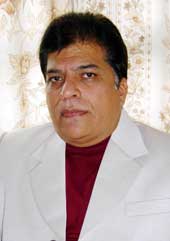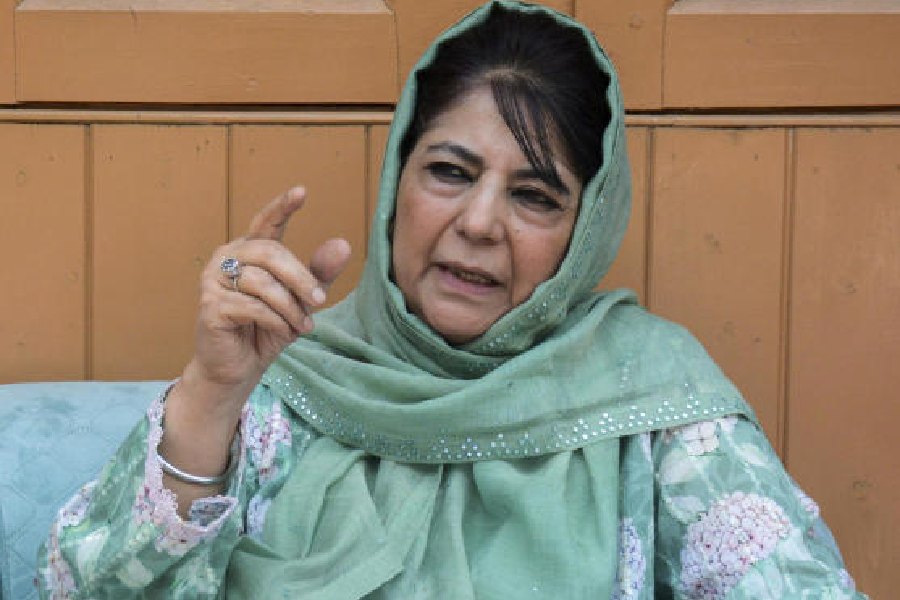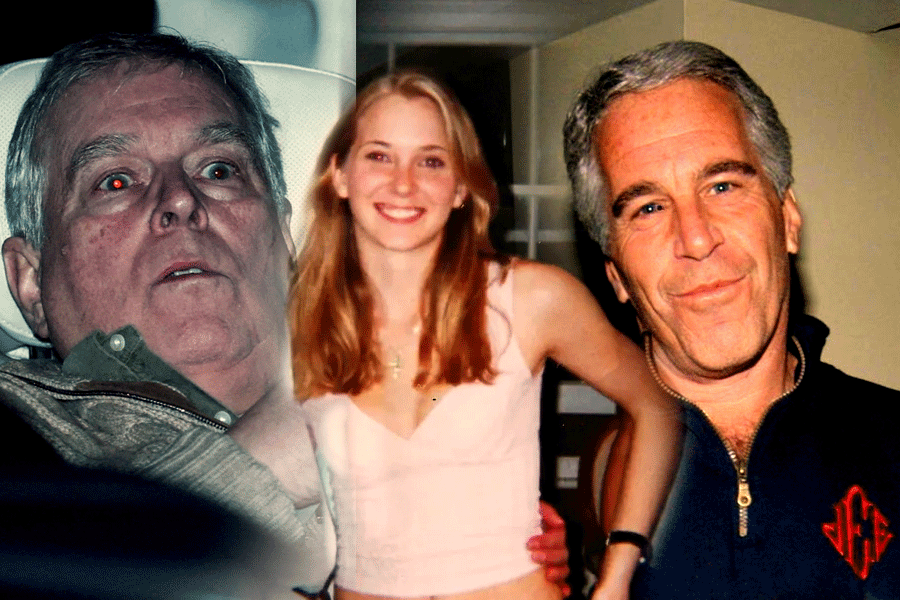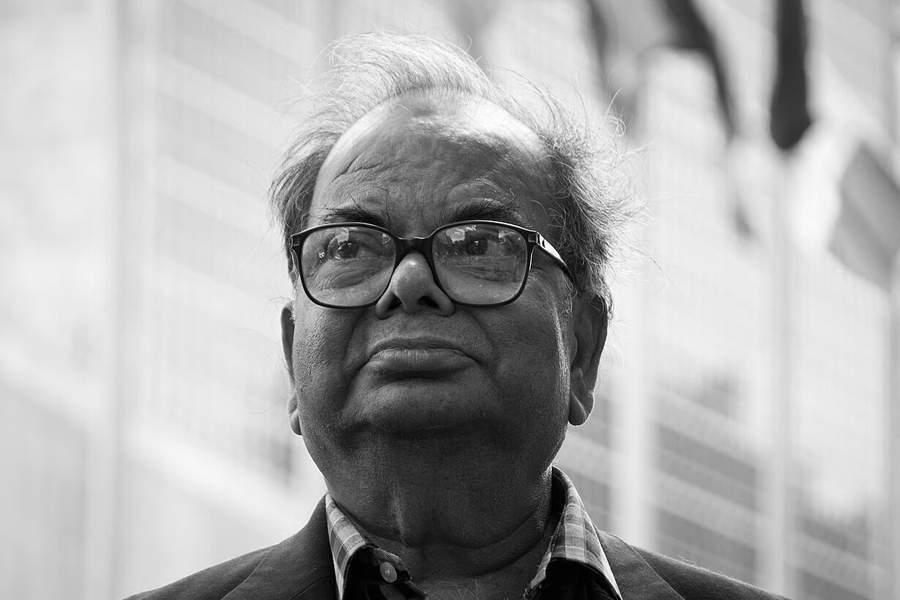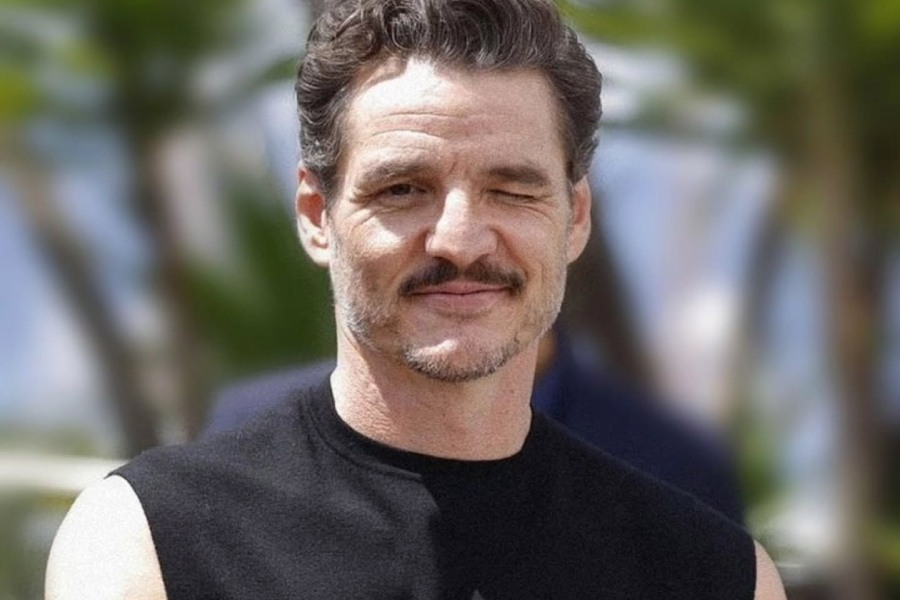 |
| Picture by S.H. Patgiri |
As an actor, he changed the impression that film heroes have to be larger than life. He made the hero look so real and vulnerable that anyone could easily identify with Amol Palekar, the actor who represents the common man.
When he took up direction as an extension of his creative zeal, he dealt with subjects close to his heart and conviction.
?Marginalised sections of society have always made me think and I want to narrate their stories on celluloid,? explains Palekar. ?It can be anyone. Women, impoverished people or, say, eunuchs. They are the ones whose lives, suffering and struggles are never noticed by society. Through my films, I want to address all these in my own manner.?
The actor-director, accompanied by his scriptwriter wife Sandhya Gokhale, attended the inaugural ceremony of the weeklong film festival ? Film Fest ’05. It was organised by the Assam State Film (Finance and Development) Corporation Ltd in collaboration with Assam Cine Art Society to generate greater awareness among the city’s cineastes regarding the best of world cinema.
?Thought-provoking films like The Bicycle Thief have inspired generations of Indian filmmakers to give some of their finest films to audiences of the country. Cine buffs need to be acquainted with cinema from across the world and the weeklong film festival, which has lined up a good number of classics, will be a feast for any cinephile,? said the director while addressing a huge gathering at Anuradha theatre hall. ?I wish all my friends happy viewing along with their friends and family.?
The film festival began with Anahat ? the Eternity, directed by Palekar himself. Anahat, made in Marathi two years back, was the inaugural film of the Indian Panorama section of IFFI ’03 in New Delhi. The film, starring Sonali Bendre, is a sensitive cinematic depiction of female sexuality. The director, with his subtle handling of the subject, puts forward the message that women, too, have their wishes and desires and have a right to assert it with full freedom and take necessary decisions whenever the situation arises.
?Anahat is my second film in a trilogy on sexuality. The first was Daayra, which deals with male sexuality. The protagonist there is a transvestite. Though Anahat is set in the 10th century, the subject is contemporary and has universal appeal. Women throughout the ages have been the most marginalised section. It is sad but true that our society is still a male-dominated one,? says the director. ?Hopefully, very soon I will come up with my third film to complete the trilogy.?
Answering a series of queries on his much-awaited multi-starrer Paheli with Shah Rukh Khan, Juhi Chawla, Rani Mukherjee and others, the director preferred not to divulge too many details.
?When I went to Shah Rukh with the script of Paheli asking him to consider playing the main role, he offered to produce the film,? he smiles. ?The film is on the editing table and I am happy with the outcome of the film. Hopefully, my collaboration with Shah Rukh will be appreciated.?
Palekar’s other film in Marathi, Kairee, is also a part of the film festival. Kairee deals with the bittersweet experiences of a 10-year-old girl brought to her maternal aunt following the loss of her parents. The girl, uprooted from a refined, loving home and placed in an unknown world, struggles to cope with the hostilities in her new environment. The film was screened at several film festivals, including Fukoka, London and the International Film Festival of India.
As a director, his oeuvre of films includes eight highly acclaimed films such as Kal Ka Aadmi and Dhaas Parval. Though Palekar never believes in following the norms dictated by mainstream cinema, yet all his directorial ventures, despite dealing with unconventional and experimental subjects, have succeeded in connecting with the audience and brought good box office returns.
?Ninety-five per cent of the so-called mainstream cinema are declared flops if we weigh by the box-office barometer,? he points out. ?So I find it hard to understand why the audience should be kept away from enjoying and appreciating films that portray reality. Films like Black and Page 3 have aptly proved that any good subject, dealt with conviction and honesty, will easily strike a chord in the audience.?
The director, who is more popular with his audience and fans for his acting prowess, is humble about his skills in depicting characters in a realistic and pure manner. As an actor, he made acting look easy and effortless. Who can forget his hide-and-seek with actor Utpal Dutt in Golmaal, the singing and charming hero of Chitchor and many other memorable roles?
?I am known as an actor who represented the middle class, while Amitabh Bachhan was an angry young man and Dara Singh a rough-and-tough hero,? he smiles. ?Everyone has his or her niche audience and thus every genre and kind of films should thrive and blossom. That should be the sign of healthy survival of any industry. The revival of different genres of films as in earlier times is really encouraging for the industry.?
The actor-director is an ardent advocate of regional films and refuses to accept that the film industry is dominated by Bollywood. Palekar stresses the need to gap the bridge that exists between regional films from across the country and the audience so that cine buffs are not denied access to regional films.
?Provide me with good literature from the state and I will be more than happy to make films based on the life and people of the state,? he says.
Maitreyee Boruah

